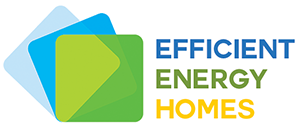
What is? Eco3 Funding
How ECO works
Under ECO, medium and larger energy suppliers fund the installation of energy efficiency measures in British households. Each obligated supplier has an overall target based on its share of the domestic energy market in Britain. The obligated energy suppliers work with installers to introduce certain efficiency measures into your homes, such as loft or wall insulation, or heating measures.
The ECO3 scheme consists of one distinct obligation: the Home Heating Cost Reduction Obligation (HHCRO).
The obligation explained
The Home Heating Cost Reduction Obligation requires energy suppliers to promote the installation of measures that lead to financial savings on energy bills, such as the installation of insulation and heating measures.
Check your eligibility
ECO3 - Energy Company Obligation version 3
The scheme’s other main policies include:
- focusing the entire scheme to support low income, vulnerable and fuel poor households
- reducing the current supplier obligation threshold of 250,000 customer accounts (or equivalent) for the scheme, in a phased way, to 150,000 customer accounts (or equivalent) from 2020
- requiring 15% of measures to be delivered to rural homes
- increasing the proportion of the scheme that can be delivered under local authority flexible eligibility to 25%
- allowing up to 10% of a suppliers’ obligation to be met through the delivery of new, innovative products
- supporting households that have a broken heating system by allowing the equivalent of 35,000 broken heating systems to be replaced per year
- encouraging a multiple measure approach by allowing the replacement of inefficient heating systems to be replaced (outside of the broken heating system cap) if they are installed alongside insulation
- requiring the equivalent of at least 17,000 solid walled homes to be treated per year, either through solid wall insulation, or using a combination of other technologies (if equivalent savings can be achieved in the property)
Green Deal
If you’re a homeowner or residential landlord you can apply for a Green Homes Grant voucher towards the cost of installing energy efficient improvements to your home.
Improvements could include insulating your home to reduce your energy use or installing low-carbon heating to lower the amount of carbon dioxide your home produces.
You must redeem the voucher and ensure improvements are completed by 31 March 2022.
How much you can get
- Vouchers will cover two-thirds of the cost of eligible improvements, up to a maximum government contribution of £5,000.
- If you, or someone in your household, receive certain benefits you may be eligible for a voucher covering 100% of the cost of the improvements. The maximum value of the voucher is £10,000. Check if you’re eligible for the low-income support scheme.
- Landlords are not eligible for low-income support.
Eligibility
- you own your own home (including long-leaseholders and shared ownership)
- you own your own park home on a residential site (including Gypsy and Traveller sites)
- you’re a residential landlord in the private or social rented sector (including local authorities and housing associations)
- You cannot get the Green Homes Grant for newly built homes which have not been previously occupied.
